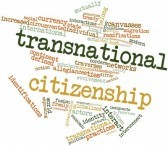My research closely follows the impact of Canada’s Temporary Foreign Worker Program (TFWP) on the immigrant settlement services and public legal education sectors. Currently I am focusing on the experiences of PLE programs for migrant workers in British Columbia, where I live and work.
As a PLE practitioner and analyst, I have been witness to the challenges that the omnipresence of TFWs represent for ISS providers all over BC, but more dramatically in rural and remote areas. As (temporary) migrants, TFWs are quite often driven to seek the culture and language-appropriate, free and professional, help and information from ISS organizations. Information about their legal rights is at the top in the list of services frequently sought by TFWs. A major obstacle arises, nonetheless, when ISS organizations are forced, by conditions set by their funders, to deny services to TFWs. Somewhere else (Contreras-Chavez, 2010) I have discussed the impact of Canada’s acts and regulations concerning citizenship and immigration, which makes most TFWs ineligible for Canadian permanent resident visa and the prospect of applying for Canadian citizenship. Further, because Citizenship and Immigration Canada (CIC) is the principal funder of ISS services, and because TFWs are not considered by CIC as “citizen material”, ISS are not authorized to serve TFWs. In my research, I argue that Canada’s citizenship and immigration law are very much out of synch with the current realities of global or transnational migration and citizenship. That asynchrony, I believe, is a major contributor or catalyst to the rising need for PLE services for migrant workers, many of whom may indeed, not think of themselves as temporary but as permanent residents and de-facto Canadian citizens.
Understanding the concept of legal immigration status applicable to TFWs, and the kind of legal rights and responsibilities TFWs are entitled to in Canada, is of extreme importance in my research. Academics, policy analysts, legal professionals, PLE and ISS workers, and TFWs themselves, each has their own perspective of that understanding and the logic residing therein. The following is an excerpt from my earlier literature review regarding the concept of citizen(ship):
UBC Law professor Catherine Dauvergne (2008) argues that by creating the TFWP and other temporary immigration programs to fill a permanent labour need with temporary migrant workers is responsible for generating an increasing population of illegal or undocumented immigrants. Canada’s current immigration system won’t allow these undocumented migrants to become eligible to apply for or to regain legal immigration status. Dauvergne is not advocating for the deportation of illegal migrants, she rather argues but for legal reforms that will facilitate permanent resident status, and a pathway to Canadian citizenship. Her position echoes that of many other critiques of the TFWP and its seemingly illogic way to meet permanent labour markets needs. As Aiwa Ong et al. (1996) would have it, undocumented migrants often contribute more to the social and economic development of their host country than many of that country’s formal citizens. I also want to draw from Audrey Macklin’s approach to contemporary citizenship debates when she suggests that theorizing about “Who is the citizen?” has neglected certain social and legal realities. Theoretical work, she posits, needs to be done to understand “Who is the citizen’s Other?” (Macklin 2007, p. 335). The legal exclusion of low-skilled TFWs from citizenship status and from better employment opportunities inspired Audrey Goldring et al., (2009) to coin the term “precarious migration status” which I favour over that of “illegal immigrant”. People with precarious migration status are marked by “the absence of any elements normally associated with permanent residence (and citizenship) in Canada” (pp. 240-241), yet these are people who proactively contribute their skills and build new ones with which they participate in the social and cultural lives of their host communities. And as legal advocates in BC will attest (AWA 2012), the level of interest and need to learn about the legal and judicial systems of Canada is very high among people with precarious migration status that dominant assumptions about migrants as unlawful need to be questioned.
